Lily Thomson’s 85 year-old fingers are still incredibly nimble as she fills a shuttle at Verdant Works in Dundee.
The motions are second nature to the Dundee woman, who first started working in the mills when she was just 14.
Lily didn’t have much choice in the matter: “I had no option, my dad died when I was four. He had an accident in the mill – he got his arm squashed.
“It was very hard for my mother – she was only 4″7′! – she was working as a spinner in the mills at 12.”
Lily’s mother had eight children but three died of diphtheria in infancy.
As soon as Lily and her four brothers were old enough they were expected to find work to help support the family.
She remembers her mother as a strong woman. “You daren’t get into trouble for, as small as she was, we did respect her.”
Leaving school at 14 was a welcome escape for Lily
She wasn’t too bothered about leaving school behind though: “I hated school!”
“The teachers were horrible – they shouted and bawled and they hit you.”
She remembers her first day at JF Robertson’s Mill as clearly as if it were last week. She got into trouble because she had come to work without a pair of scissors.
“I remember that I didn’t have scissors – you had to buy your own but nobody told me.”
She was put on a loom with an experienced weaver who wasn’t too impressed by the lack of scissors.
Lily got a right telling-off: “I thought, ‘this is as bad as school!'”
She brought a pair from home for her afternoon shift and never went to work without her scissors again.
In fact, she still doesn’t leave home without her trusty scissors. She reached into her handbag and produced a pair when the thread on her loom needed snipped!
Jute mills were dirty, noisy and dangerous
As we chat on the factory floor of the Verdant Works, one of other volunteers sets a loom running.
The noise seems deafening. Then Lily points out that is just the clatter of one machine – most mills would have had rooms with hundreds of looms running at once.
“There was no health and safety. Nobody thought about your ears and that’s why we are all deaf,” she says. “I remember the noise and the smell -the jute had a smell like oil – and the stour.
Lily had to be confident to succeed in Dundee mills
“The secret of the mills was not to be frightened of the machines.” explains the former mill-worker.
Many of the machines were permanently running, meaning that a mistimed adjustment or nervous movement could result in disaster.
Lily explains that as she grew in experience as a weaver she learned to work two and then more looms at once.
“We could switch the looms on and off,” she says, “but you didn’t want to do that because you were losing money.”
The weavers were paid according to the amount of cloth they produced.
Dundee’s changing mills
Lily enjoyed weaving jute and became adept at different weaves for coal bags, coffee bags or carpets.
When the material that she worked with changed, she decided that mill work was no longer for her:
“When the polypropylene came in we began to weave the plastic,” she says.
The dust from the plastic filled the air and coated everything. “It was like baby powder,” she recalls. “It made your eyes water.”
So after many years spent at JF Robertson’s Bower Works and then Fergusons Mill, Lily decided to make a change.
She moved into cleaning work, starting out in banks before being asked to clean for the bank managers’ wives. “I had four cleaning jobs up until I retired.”
A second career for Lily volunteering at Verdant Works
When Lily retired aged 60 she didn’t put her feet up or decide to spend more time with husband Ewan, son Craig and grand-daughter Amy.
Instead, her step away from the world of work coincided with the opening of Verdant Works Museum in a refurbished mill building.
She heard that they were looking for volunteers: “I thought that’s a good job for me and it has been a marvellous hobby,” she enthuses.
“I’ve been here for 28 years and seven months and I have loved every minute of it.
“I’ve met people from all over the world and from every walk of life. I met a man called David from Tibet, he had the orange robes and the sandals.
“I’m very good at talking!” she remarks with a glint in her eye.
Famous faces at Verdant Works
Lily has met her fair share of tourists from all over the world and a few famous faces in her time as a volunteer.
She filmed with Michael Portillo at the museum: “He was an absolute gentleman,” she recalls.
Lily also featured in a documentary about the jute industry with Dundee’s own Brian Cox. She told Brian all about the sign language that the mill workers developed to communicate with each other over the noise of the looms.
The former weaver has also appeared on The Antiques Road Trip and The One Show. “That’s the first thing I’ve refused to do in Verdant Works,” she laughs, “they asked me to sing and I said no.”
“If my son had seen me singing on the One Show at 7 O’clock at night he would have killed me!”
Big shoes to fill
It’s easy to see that Lily’s departure will leave a huge gap at Verdant Works. She is an inspiration – the very definition of the strong women who helped to shape the city of Dundee.
When I tell her she is amazing, she shrugs and says modestly: “I’m just me.”
Lily says she is lucky never to have suffered from the respiratory problems that plagued so many mill workers. Her hearing has suffered but she is still sharp as a tack.
But she also points out: “I’ve never smoked and I’ve never drunk,” and she still climbs the 65 stairs to her flat in – you’ve guessed it – a converted jute mill.
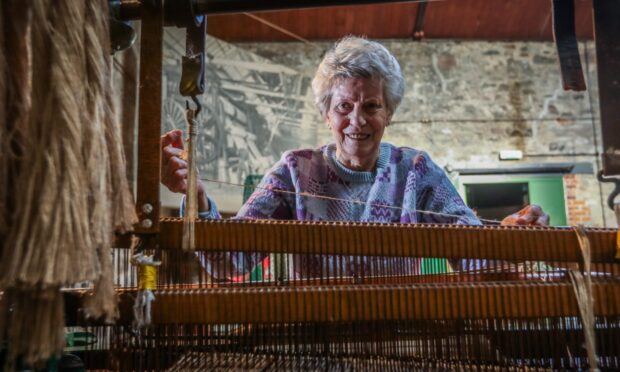
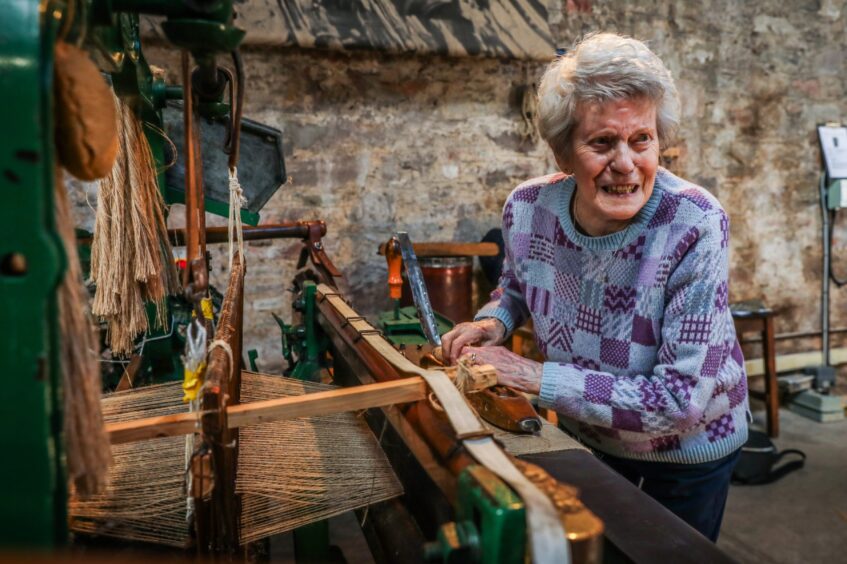
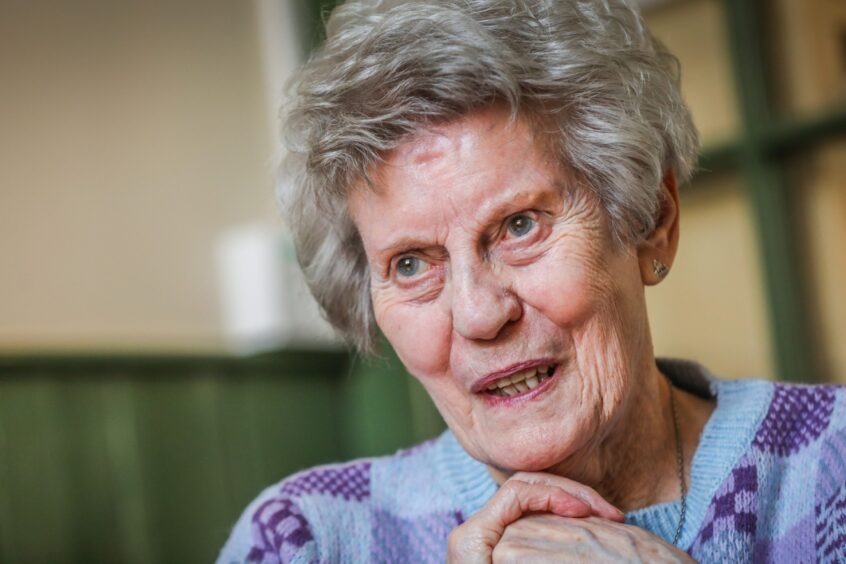
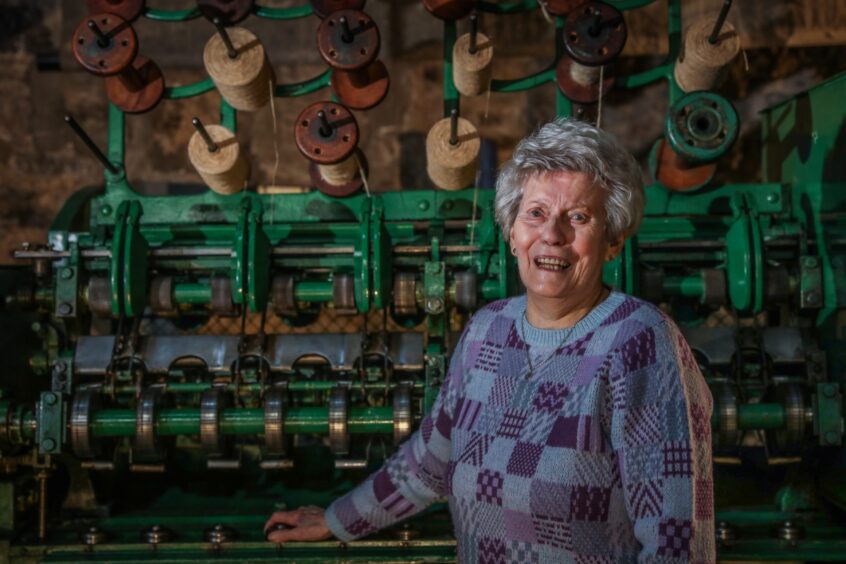
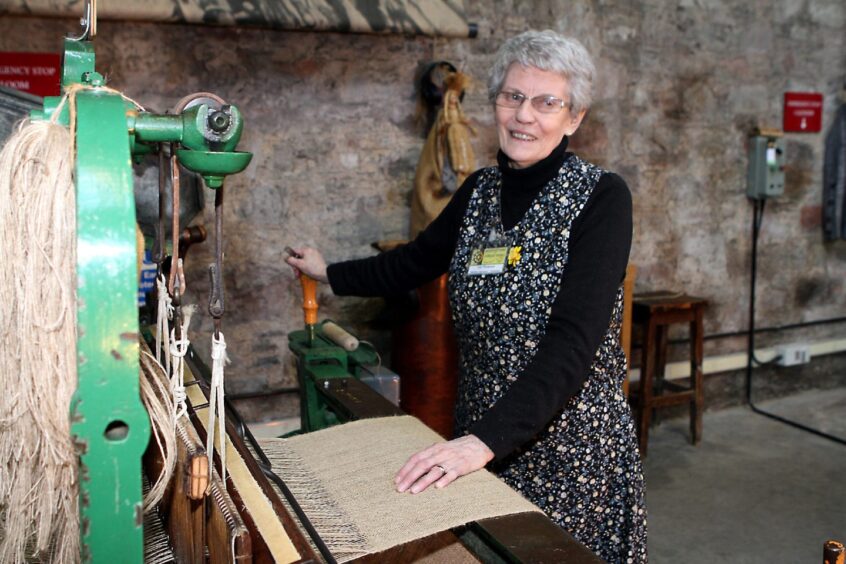
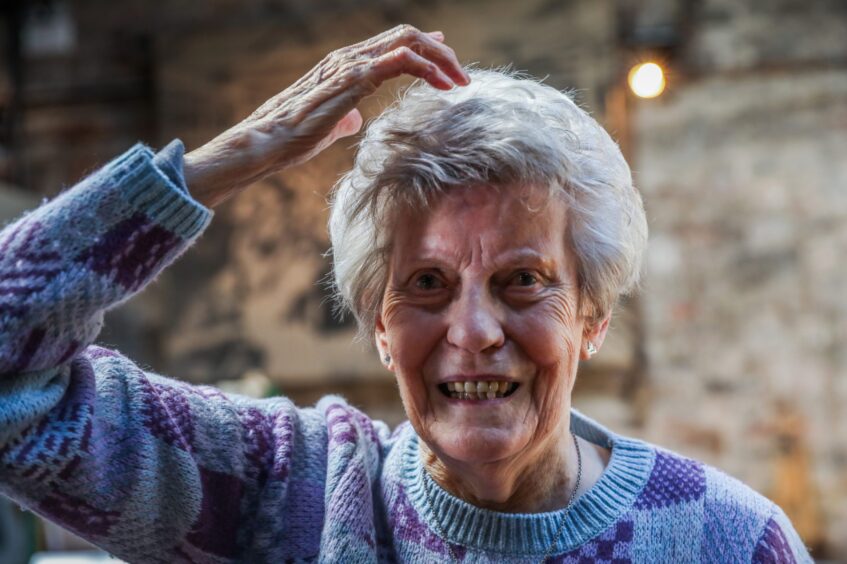





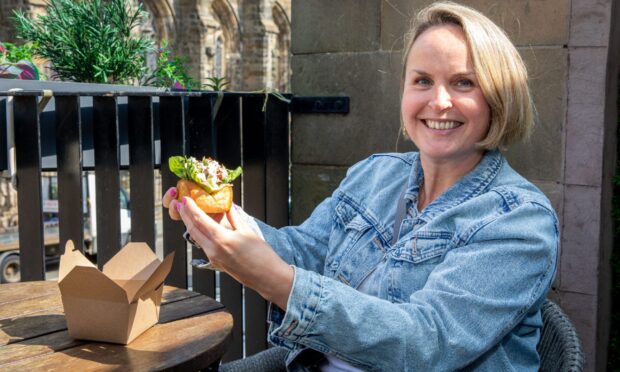




Conversation